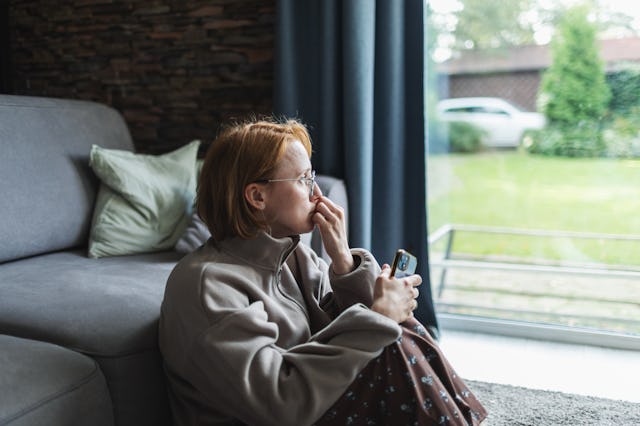Study: A Grief App Can Help Parents Who Have Lost A Child
Using the app for three months reduced the symptoms of prolonged grief and PTSD.

There are few things in this world more heartbreaking than losing a child. It makes sense, then, that many parents who experience the death of a child enter into what’s known as prolonged grief disorder (PGD) — a disorder in which the parent isn’t able to process their grief so that they can better live with it. Parents with PGD may experience months and years inability to “move on”, feeling completely numb, and being totally preoccupied with their loved one’s death. They might also suffer from deep depression, suicidal thoughts and behavior, and substance abuse.
"They may preserve the child's room as it was or visit the grave very frequently, even several years after the loss. It becomes a kind of ritual and a duty that they cannot escape,” explained study author Josefin Sveen, a Professor of Clinical Psychology at Uppsala University in Sweden, to ScienceDaily.
While this depth of grief makes sense and often colors the first months of mourning, not being able to feel any relief over time is can be severely debilitating.
In her study, which was published this month in the journal Cognitive Behavioral Therapy, Sveen developed an app designed specifically for parents who have lost a child. The app helps users normalize their thoughts and feelings and then process them over four different ways.
The first step is learning about what prolonged grief is and about grief in general. The second step is learning how to seek support from your community and from medical professionals. The third step is building a toolbox of exercises and strategies to recognize, understand, and process your grief, like writing a letter to your child or visiting a place your child loved. The last step is tracking the appearance and severity of your grief over time, in order to recognize patterns and observe any moments of relief.
"Many participants thought [the grief meter] was particularly useful. Being able to see that their grief changed from day to day, that there are certain times when it is worst, and that they can feel quite all right in between," Sveen said
The app was given to 248 volunteer parents who had lost a child in the last 10 years. The average age of the child who passed away was 11 years old, and about half were cancer patients. Half of the parents were given immediate access to the app, while half waited for three months before starting.
After using the app for three months, a significant number of parents said that their symptoms of prolonged grief and PTSD had reduced along with their negative thinking. They also agreed that the app should be made available to mourning parents early in the grief process. The self-assessments within the app reflected these improvements.
Sveen said that the next step is checking back in on the study’s parents a year after using the app to understand long-term results.
She is also developing a similar app for youth who have lost a parent or sibling.
In some ways, a parent will never fully get over the loss of a child. But with tools like this grief app, they can get help relieving their pain and re-engaging with their life.